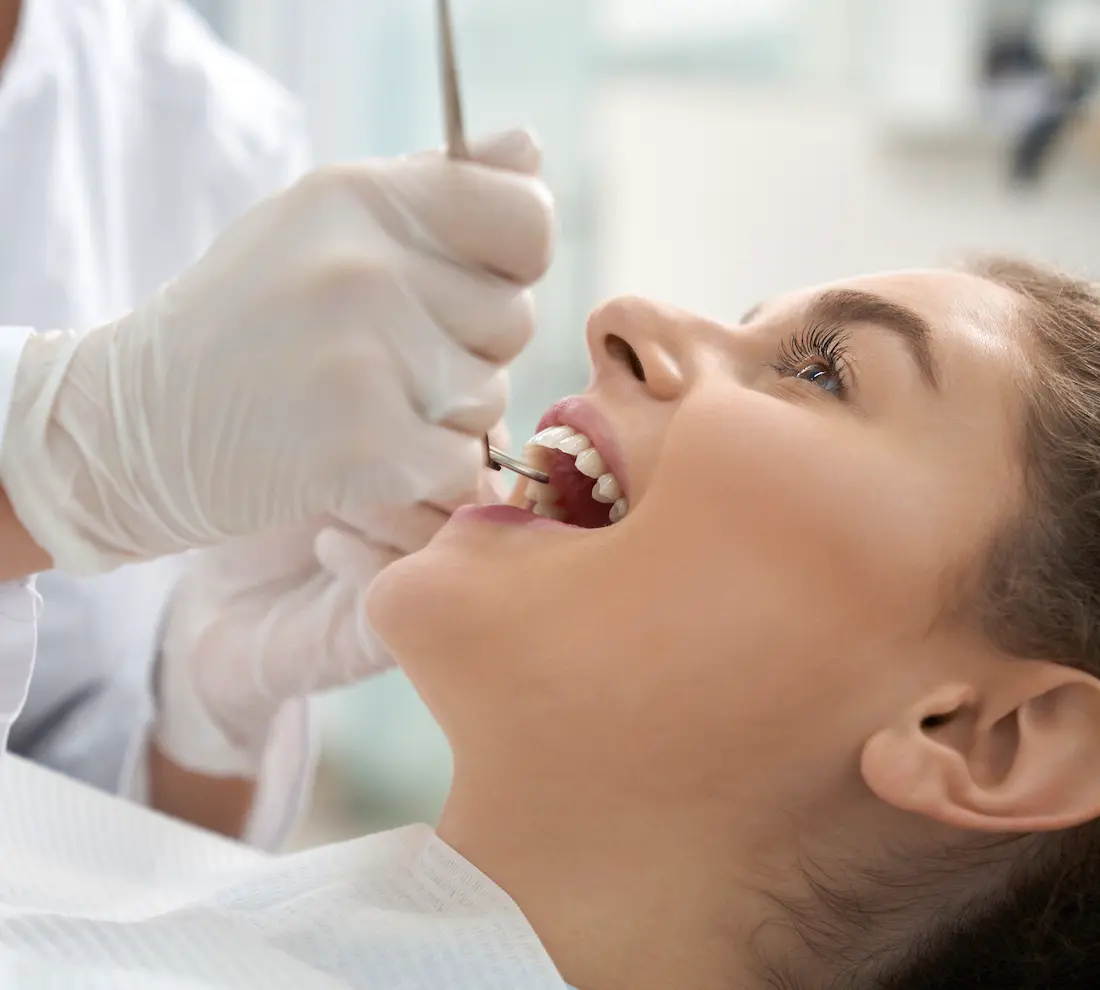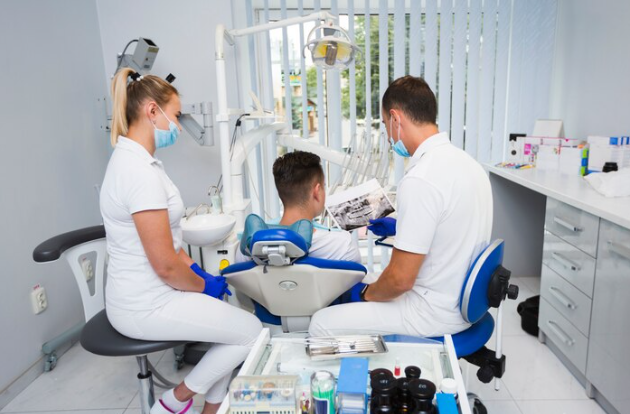
Your smile is one of your greatest assets, but keeping it healthy takes more than just brushing at home. Regular dental cleanings are a simple yet powerful way to prevent cavities and protect your teeth for the long haul.
Even with good oral hygiene habits, plaque and tartar can build up in those hard-to-reach places, creating the perfect environment for cavities to form. Professional cleanings remove what brushing can’t, giving your teeth a fresh start. Think of it as a routine check-up for your smile—preventing small issues from becoming big problems.
Plus, your dentist can spot early signs of decay or other concerns before they turn into expensive treatments. Regular cleanings not only keep your teeth cavity-free but also leave you with a brighter, healthier smile. It’s a small investment of time with lasting benefits—because when it comes to your oral health, prevention is always better than cure.
How do regular dental cleanings help prevent cavities?
Regular dental cleanings play a vital role in preventing cavities through several key mechanisms:
- Plaque and Tartar Removal: Professional cleanings help eliminate plaque—a sticky bacterial coating developing on teeth. Should plaque not be eliminated by consistent brushing and flossing, it might harden into tartar, which is much more difficult to remove. By removing both plaque and tartar, dental cleanings lessening the bacterial burden in the mouth helps to lessen the danger of tooth decay.
- Early Detection of Issues: Dental professionals examine the teeth and gums for first indications of cavities or other dental problems during dental cleanings. Early detection allows prompt treatment, preventing minor issues from escalating into more significant cavities requiring more invasive procedures.
- Fluoride Treatment: Many dental cleanings include fluoride treatments, which help strengthen tooth enamel. Fluoride is a mineral that can remineralize weakened enamel and strengthen teeth against decay, further protecting against cavities.
- Personalized Oral Hygiene Education: Dental hygienists provide valuable teaching correct flossing and brushing methods catered to individual needs. This guidance empowers patients to maintain good oral hygiene practices at home, significantly reducing the risk of cavity formation.
- Dietary Advice: During cleanings, dental professionals can also offer dietary recommendations to help patients avoid foods and drinks contributing to cavity development, such as sugary snacks and beverages.
- Gum Health Maintenance: Healthy gums are crucial for overall oral health. Frequent cleansings help avoid gum disease, which might indirectly contribute to cavity formation by creating an unhealthy oral environment.
By integrating these practices, regular dental cleanings are a proactive measure that significantly contributes to cavity prevention and oral health.
What happens if you skip regular dental cleanings?
Skipping regular dental cleanings can have several negative consequences for oral health. Here’s what can happen:
- Plaque and Tartar Buildup: Plaque can accumulate on your teeth without regular cleanings. If not removed, it hardens into tartar, which can only be eliminated through professional cleaning. Tartar buildup increases the risk of cavities and gum disease.
- Increased Risk of Cavities: As plaque and tartar accumulate, the bacteria they harbor can erode tooth enamel, leading to cavities. Untreated cavities can progress, causing pain and requiring more extensive treatments like fillings or root canals.
- Gum Disease Development: Skipping dental cleanings can contribute to gingivitis, the early stage of gum disease. Symptoms include swollen, bleeding gums and bad breath. If left untreated, gingivitis can progress to periodontitis, resulting in tooth loss and damage to the supporting bone.
- Early Dental Issues Go Unnoticed: Regular dental visits allow for the early detection of dental problems. By skipping cleanings, you may miss early signs of cavities, gum disease, or other issues, leading to more serious and costly treatments.
- Increased Dental Costs: Neglecting regular cleanings can result in more extensive dental work needed later, such as crowns, root canals, or extractions. This can lead to higher overall dental costs and more time spent in the dentist’s office.
- Overall Health Implications: Poor oral health is linked regarding systematic health problems including diabetes, heart disease, and respiratory problems. Neglecting dental care can contribute to these health risks.
- Bad Breath: Accumulated plaque, tartar, and bacteria can cause ongoing bad breath, therefore influencing social events and self-confidence.
Skipping regular dental cleanings can lead to a cascade of oral health issues, increased dental costs, and potential impacts on overall health. Maintaining routine dental cleanings is crucial for preventing these complications and ensuring long-term oral health.
Are professional cleanings more effective at preventing cavities than brushing at home?
Professional dental cleanings are generally more effective at preventing cavities than brushing at home alone. Here are several reasons why professional cleanings provide superior cavity prevention:
- Thorough Plaque and Tartar Removal: Dental professionals have the tools and expertise to help eliminate tartar and plaque accumulation that is not covered by routine brushing and flossing. Only expert cleaning can eradicate tartar, and its presence greatly raises the likelihood of cavities and gum disease.
- Expertise in Detection: Professional cleanings allow dental hygienists and dentists to spot early cavities and other oral problems that might not be apparent to the uneducated eye. Early identification lets one cure quickly, therefore preventing greater injury.
- Fluoride Treatments: Fluoride treatments increase resilience of teeth, strengthen enamel, and fight germs resistant to decay. Common components of professional cleansings consist of these ones. Although fluoride toothpaste has great benefits, cavity prevention is more successful with the level of fluoride used in professional treatments.
- Education on Proper Techniques: Dentists provide perceptive guidance on effective brushing and flossing techniques customized to personal needs. This tailored advice enables patients to enhance their oral hygiene and home care practices.
- Customized Recommendations: Dentists can assess your oral health needs and recommend dietary changes or sealants as additional preventative measures to significantly reduce the cavity risk even further during cleanings.
- Regular Monitoring: Professional cleanings provide a routine opportunity for dental professionals to monitor changes in your dental hygiene and guarantee that any possible problems are resolved before they become serious.
While regular brushing and flossing at home are crucial for maintaining oral health, they cannot replace the benefits of professional cleanings. Together, they form a comprehensive approach to cavity prevention, ensuring optimal oral hygiene and health.
How often should you schedule dental cleanings to avoid cavities?
We usually advise scheduling dental cleanings every six months to avoid cavities and maintain good oral health. These salient features should help you to evaluate the frequency of dental cleanings:
- Standard Recommendation: Most dental professionals advise biannual cleanings, which thoroughly remove plaque and tartar buildup and let one early on identify possible problems, including gum disease and cavities.
- Individual Needs: Some people could demand more regular cleanings based on their specific oral health conditions. Those with a history of gum disease, cavities, or oral issues would benefit from earnings every three to four months to maintain oral health.
- Age and Risk Factors: Children and teenagers may also need more frequent cleanings, especially as they develop permanent teeth. Similarly, adults with risk factors such as diabetes, smoking, or dry mouth may require more frequent visits.
- Oral Hygiene Practices: Consistent at-home oral hygiene practices—such as regular brushing, flossing, and a balanced diet—can help minimize the risk of cavities and may allow for a more standard six-month cleaning schedule.
- Consultation with Your Dentist: You must see your dentist to decide which cleaning plan is most suitable for your particular oral health requirements. They can provide customized guidance depending on your dental history and current health.
While the general guideline is to schedule dental cleanings every six months, individual factors may necessitate a different frequency. Regular visits are crucial for preventing cavities and other dental problems and maintaining oral health.
Keep Your Smile Healthy with Cleanings!
At Gentle Touch Family Dentistry, a good smile depends on frequent dental cleanings. Our experienced team provides comprehensive cleanings that remove plaque and tartar buildup, helping to prevent cavities and gum disease. We take the time to ensure each visit is comfortable and informative, educating you on the best oral hygiene practices for your unique needs.
By prioritizing routine cleanings, you can catch potential issues early and enjoy long-term oral health. Don’t wait for problems to arise—schedule your dental cleaning today and keep your smile bright and healthy for years to come!



